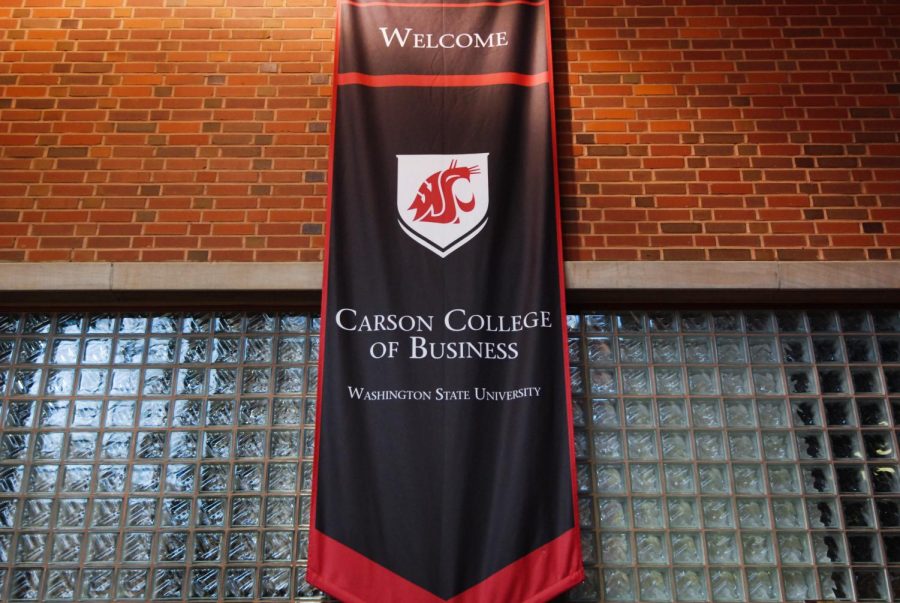Business college to have new program requirements
Next Carson Coug will move certification process up, teach soft, ethical skills
OLIVIA WOLF | DAILY EVERGREEN FILE
WSU’s School of Hospitality Business Management is run out of the Carson College
April 21, 2019
WSU’s Carson College of Business will have new program requirements for incoming freshmen this fall.
Thomas Tripp, WSU Vancouver senior associate dean for academic affairs, said there will be changes in the Next Carson Coug business curriculum and co-curriculum program, such as moving certification up one year.
Tripp said the program is designed to teach students soft, ethical and collaboration skills.
“There has not been this much focus, in the past, on developing students with soft skills,” he said.
Tripp said business students can certify at the end of their freshman year instead of the end of their sophomore year.
“We want to get people in the college sooner, identify with the college and start giving more opportunities,” he said.
The freshman course requirements will include an “Introduction to Business” course and a networking course, which will help students understand the fundamentals of business, Tripp said.
Tripp said he wants students to start learning and gaining experience in the business field to advance the chances of securing a job after graduation.
Some additions to the curriculum also include an ethics course, he said, which will be one of the student’s requirements during sophomore year.
Tripp said every sophomore business student will take courses involving spreadsheet learning, data visualization, decision making and decision analysis.
Tripp said there will be a required co-curriculum component that will involve career planning and networking. Students will have to engage themselves in activities outside of the classroom that are not for credit.
Carson College of Business Dean Larry Hunter said they reviewed the current requirements and decided to set new standardized requirements for all business majors.
Tripp said the college noticed that the students lack essential skills after having conversations with local business employers.
The program will include about 70 enrolled students in each course to increase interactivity in classrooms.
“We feel that it is small enough to do interactive things like case studies, classroom exercises, and the professor can know every student’s name,” he said.
Hunter said they would provide more opportunities to have hands-on and group work activities in smaller classrooms.
He said they cannot change the curriculum for students who are in the middle of the current standard requirements.
Tripp said they developed a faculty task force to look into the requirements for the current program. The idea for the new business program started in spring 2016 after re-evaluating the college and the effectiveness of its courses.
He said Faculty Senate approved the updates on the new program in spring 2017 after proposing new learning goals.
“We listened to students. We listened to employers. We listened to our alumni,” Hunter said. “We want to make sure the students get the best business education we can possibly provide.”









